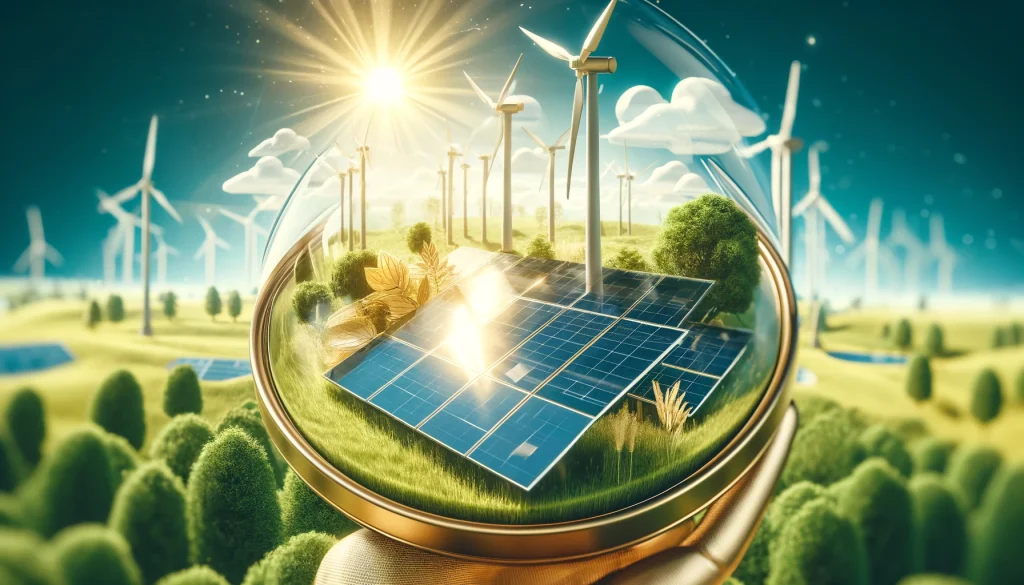In recent years, the renewable energy sector in the United States has witnessed significant growth. This upward trend in renewable energy investment is driven by an increasing demand for cleaner and more sustainable energy sources. Investors are keenly interested in this sector due to its economic importance and potential for long-term gains.
As the focus on sustainability intensifies globally, the U.S. market has become a prime target for investments in solar, wind, hydroelectric, and other sustainable sources. The renewable energy sector is not only crucial for reducing carbon footprints but also plays an essential role in the nation’s economic development.
As a result, renewable energy investment has surged, unlocking a myriad of economic benefits. From job creation to technological advancements, the sector presents significant opportunities. Moreover, governmental policies and incentives are accelerating the pace at which investors are participating in this green transition.
Current landscape of renewable energy investment market

The renewable energy investment market in the United States is experiencing dynamic growth. Data shows increased investments across various sustainable energy sources, including solar and wind power. This progression signifies a shift towards a more diversified and resilient energy portfolio. Companies in the sector are experiencing rapid growth, spurred by technological advancements and supportive policies.
These investments are driving substantial economic impacts, contributing to a more sustainable future. In particular, solar energy has seen a notable increase, attracting significant capital and interest from investors. Wind and hydroelectric energies are also gaining traction, marking a pivotal era for renewable energy investment in the U.S. This growth indicates a profound commitment to transitioning away from fossil fuels.
As renewable energy sources become more widespread, the economic benefits are becoming increasingly evident. The market expansion is not only creating direct employment opportunities but also stimulating secondary markets. This multiplier effect exemplifies the sector’s broad impact, further solidifying its role in the economy.
Driving factors behind investment growth
A key factor propelling the growth of renewable energy investment is the implementation of favorable government policies. Tax incentives and subsidies are effectively lowering barriers for investors, encouraging more participation. Additionally, the ESG agenda has become a significant driver, with companies prioritizing sustainability in their operations. This focus aligns with societal values, fostering an environment conducive to investment.
Another factor is the increasing consumer demand for clean energy solutions. Companies and individuals are more inclined towards sustainable practices, driving the market for renewable energy. This shift is promoting further innovation and investment in emerging technologies, such as energy storage and distributed energy solutions.
Furthermore, the growing emphasis on decarbonization is encouraging investments in cleaner technologies. The transition to a low-carbon economy is not only a necessity but an opportunity for investors seeking to align their portfolios with sustainable growth. Consequently, renewable energy investment is likely to continue its upward trajectory.
Challenges and barriers in the sector
Despite the promising outlook, renewable energy investment faces several challenges. Initial costs remain high, posing a significant entry barrier for small and medium-sized investors. However, technological innovations and economies of scale are gradually reducing these costs, making investment more accessible.
Regulatory challenges also present barriers to investment. The complex and often inconsistent regulatory environment can deter potential investors. Navigating these regulations requires careful planning and strategic decision-making, often necessitating collaboration with policy experts and stakeholders.
Energy storage solutions remain a key challenge for the sector. Effective energy storage is critical for ensuring the reliability and stability of renewable energy sources. As technology advances, overcoming these storage challenges will be pivotal for the continued growth of the sector.
Trends and investment opportunities
The renewable energy sector is burgeoning with investment opportunities, particularly in emerging technologies. Distributed energy resources, such as rooftop solar and community wind projects, offer unique investment avenues. These solutions provide localized benefits and resilience, attracting both public and private investments.
Advanced battery technology and green hydrogen are also witnessing increased investor interest. These innovations hold promise for enhancing energy efficiency and storage, key components of a sustainable energy future. As these technologies mature, they will likely become integral to the renewable energy landscape.
Additionally, regions with abundant natural resources, such as vast sun exposure or strong winds, are poised for significant growth. Investors are keenly observing these areas for their untapped potential, anticipating substantial returns as infrastructure and technology develop.
Economic and environmental impacts of investments
The uptick in renewable energy investment is generating positive economic impacts, including job creation and economic diversification. These investments are also integral to the nation’s transition to a sustainable energy framework, reducing dependency on fossil fuels.
On the environmental front, increased investments are contributing to significant reductions in greenhouse gas emissions. This shift is crucial for mitigating climate change and promoting ecological sustainability. The synergy between economic gains and environmental benefits underscores the value of sustained investments in this sector.
Furthermore, the ripple effects of renewable energy investment are evident in community development and energy independence. By nurturing local industries and technologies, the sector is fostering a more resilient and sustainable economy for the future. To explore educational resources and opportunities in this field, consider visiting Cursos Edu.






